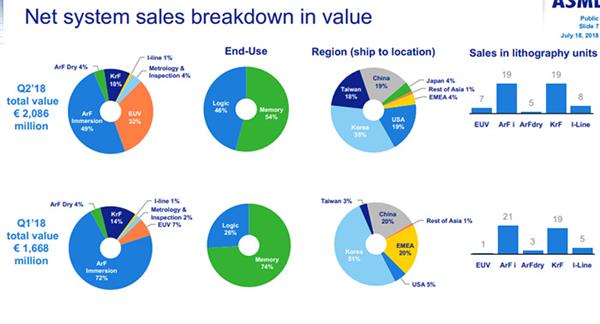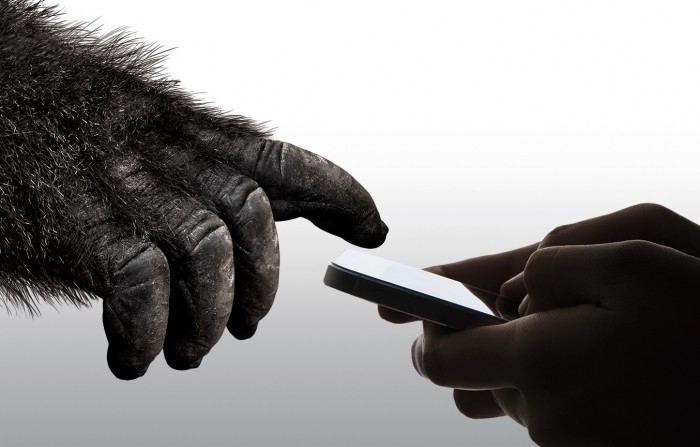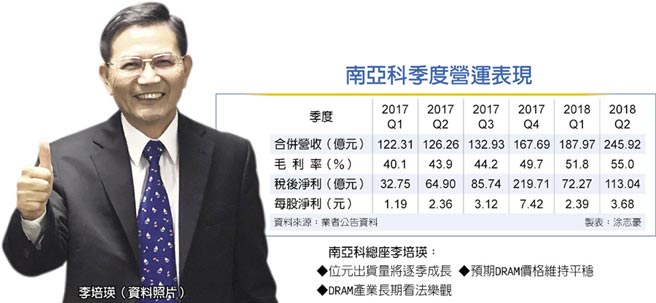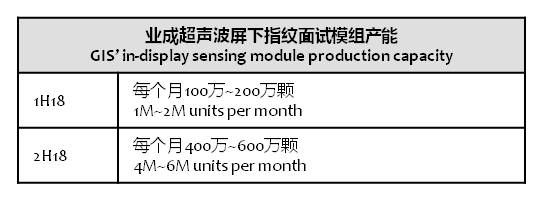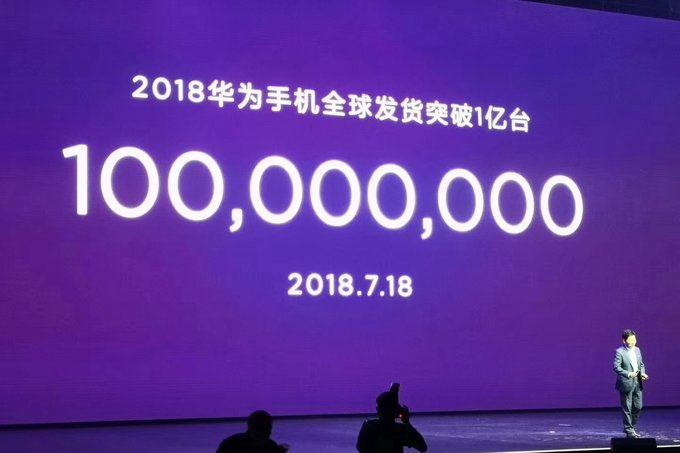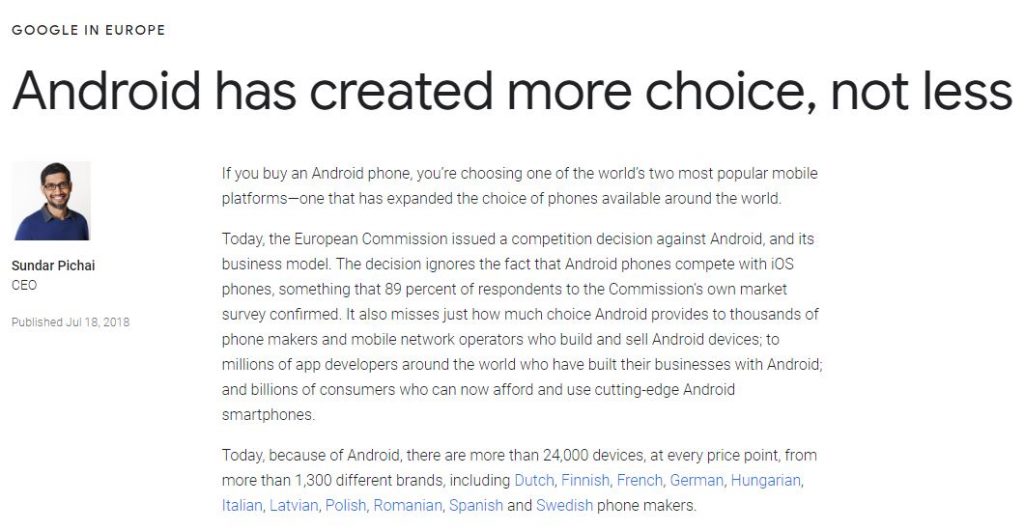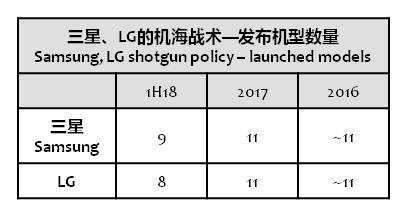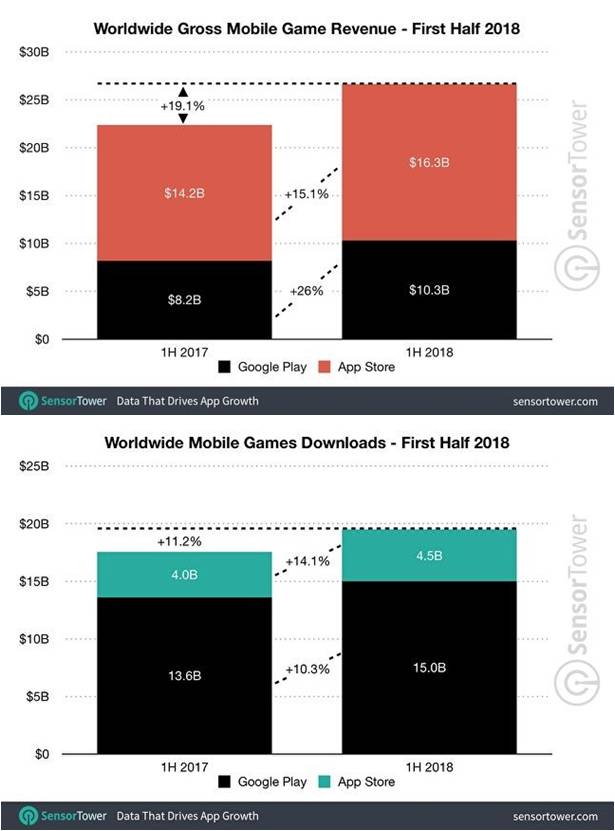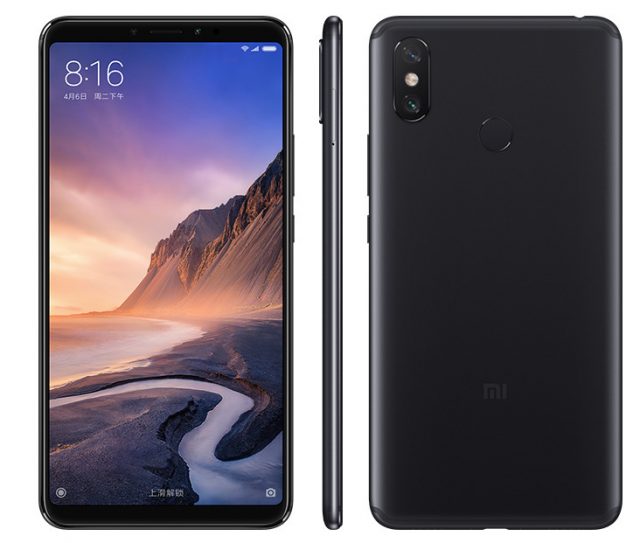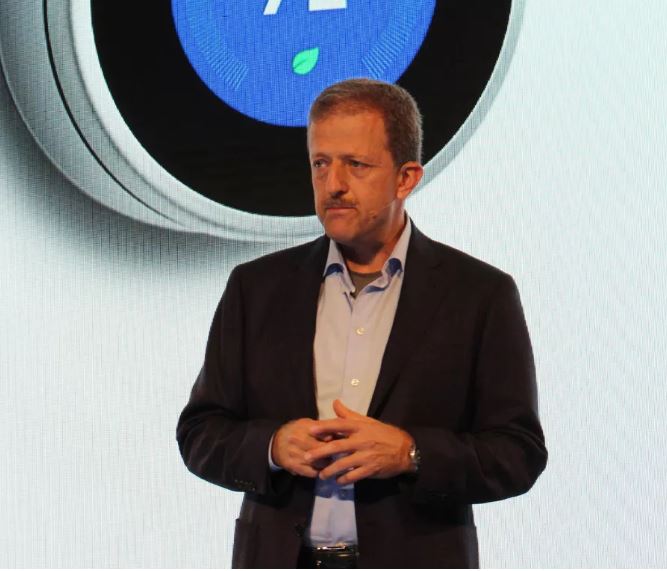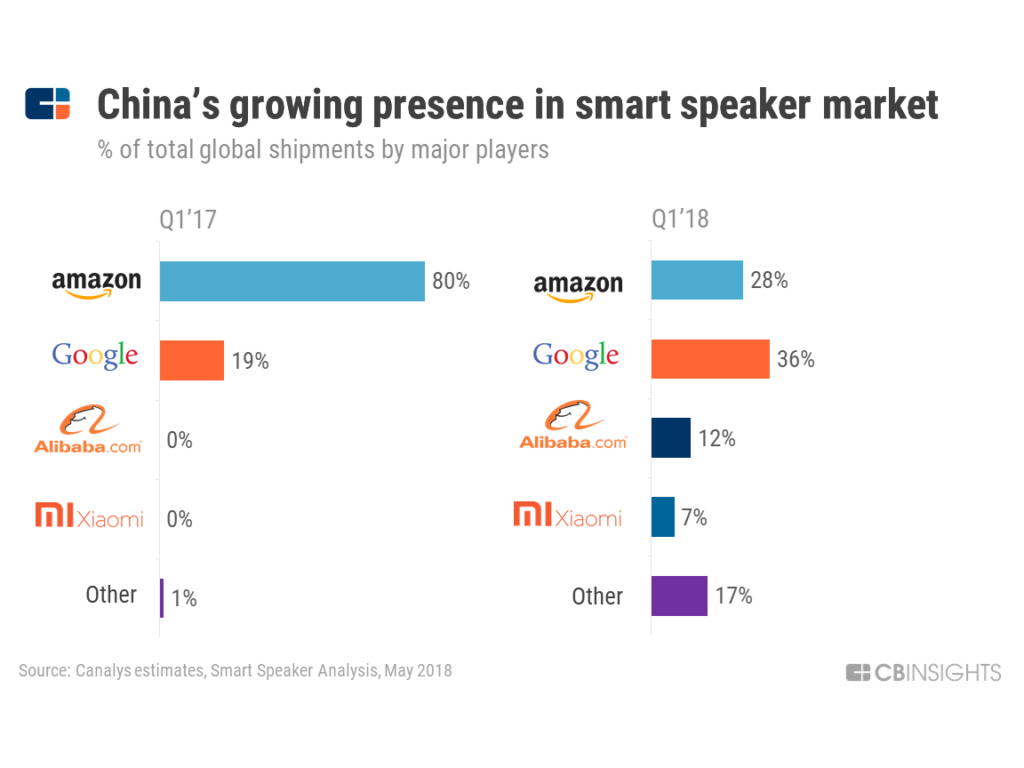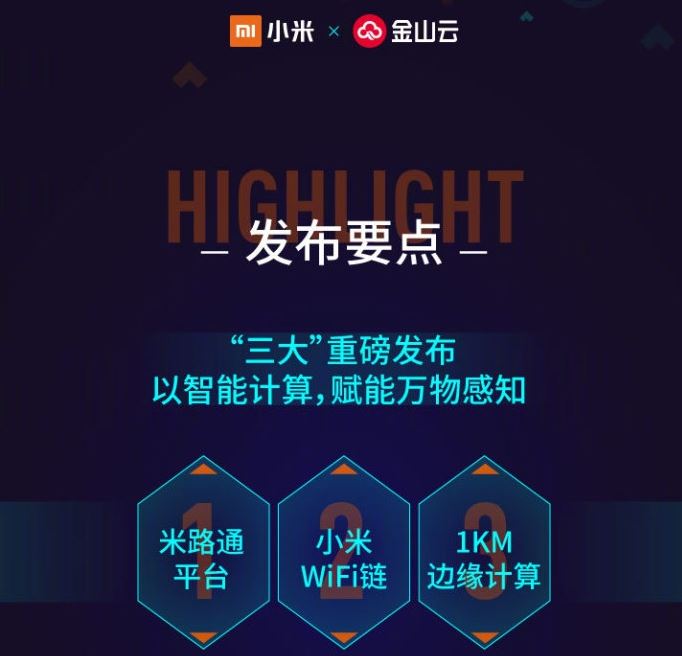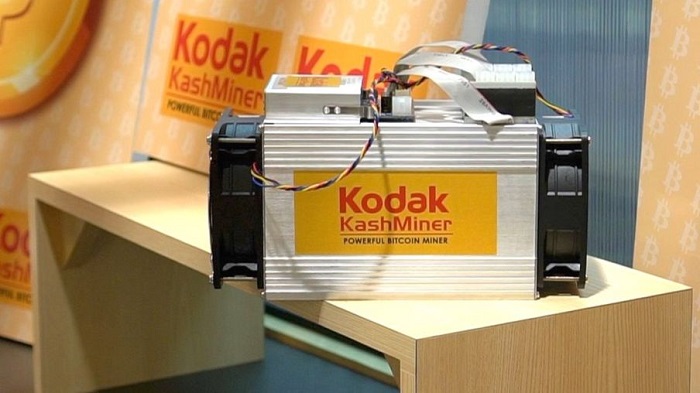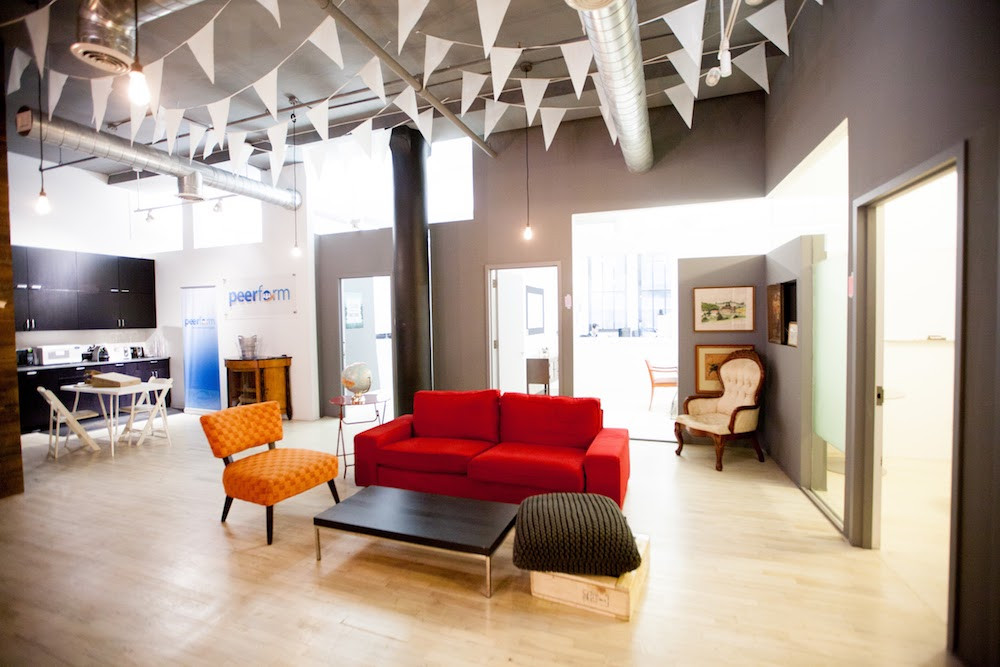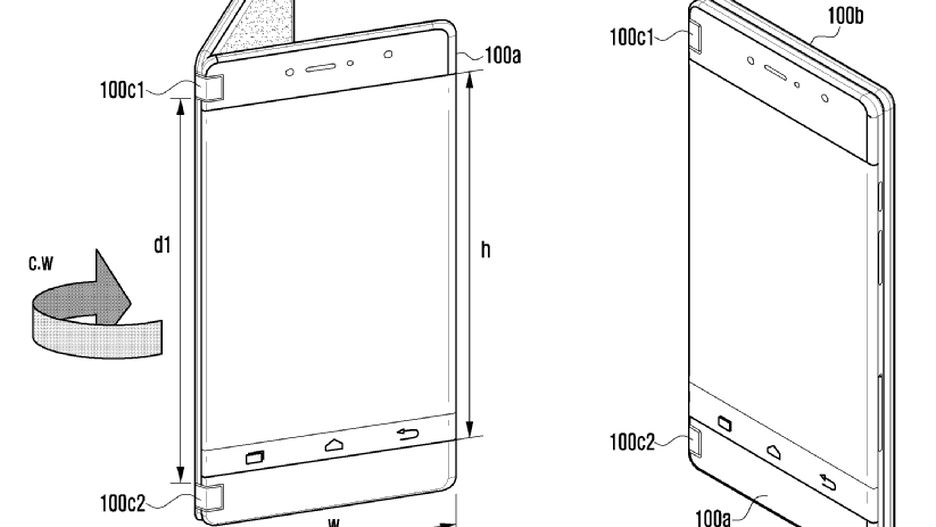
07-19: Samsung is reportedly planning to introduce a foldable-screen smartphone early 2019; GIS’ shipments of in-display sensing modules to Samsung are likely to reach 35M~40M in 2019; etc.
Chipsets
Netherlands-based ASML 2Q18 net sales is EUR2.74B (USD3.19B), net income is EUR584M (USD680M). In 2Q18 ASML has shipped 4 EUV systems, and on track to supply 20 EUV systems in 2018. (CN Beta, EE Times, Seeking Alpha, Laser Focus World)
Touch Display
Samsung is reportedly planning to introduce a foldable-screen smartphone early 2019. The Samsung prototype, which bears the internal code name “Winner,” features a screen that measures about 7” diagonally. When folded have cameras on the back and a small display in front. (Android Headlines, The Verge, WSJ, Wall Street CN)
Corning has unveiled Gorilla Glass 6, whose composition has been altered to better survive multiple drops without breaking. In tests, it could handle an average of 15 drops on to a rough surface from 3.3 feet. (CN Beta, Engadget, The Verge, Corning)
Visionox indicates that Kunshan Gen-5.5 AMOLED production line 2nd phase has begun since Aug 2017 with yield rate and ramping progressing smoothly. Visionox Gen-6 flexible AMOLED production capacity reaches 30,000 per month. (Laoyaoba, Xuehua, JRJ, OfWeek)
Camera
Light, which aims to bring DSLR-quality photos to mobile cameras through algorithmic imaging, has raised USD121M in a series D round of funding led by the SoftBank Vision Fund, with participation from Leica Camera. The company develops digital photography tech that squeezes multiple lenses and sensors into smartphones and other mobile cameras to produce super high quality images. (VentureBeat, Forbes, Business Insider, Tencent)
Storage
DRAM chipmaker Nanya Technology saw its gross margin climb to a record-high 55% in 2Q18, when consolidated revenues also hit their highest quarterly level in the company’s history. Nanya’s bit shipment growth is likely to decelerate to 1%~3% in 4Q18, but the company reiterated its target of 48% bit shipment growth in all of 2018. Nanya expects to start shipping 20nm 8Gb DDR4 chips for server applications at the end of 2018. The company also plans to roll out its LPDDR4/4X products later in 2H18. (Digitimes, press, China Times, LTN)
Sensory
Mantis Vision, a leading provider of advanced 3D sensing, volumetric content acquisition and sharing technologies, has announced the closing of its Series D round of USD55M with a total investment of USD83M to date. The Series D investment was led by Luenmei Quantum, a new investor in Mantis Vision, and Samsung Catalyst Fund. (Laoyaoba, Reuters, PR Newswire)
Biometrics
Touch panel supplier General Interface Solution (GIS) has reportedly landed ultrasonic in-display sensor module orders from Samsung Electronics with shipments to begin in 2H18, according to Digitimes. GIS’ shipments of in-display sensing modules to Samsung are likely to reach 35M~40M in 2019, with USD10~12 unit cost. (Digitimes, press, China Times, CNYES)
Phone
China 3 big operators have released the candidate list for network equipments, ZTE Corp is on the list. After the ban is lifted, ZTE has already received the orders from the 3 big operators, which amount to CNY500M. (CN Beta, Sohu, NBD)
Towards the beginning of Jun 2018, Huawei officially confirmed its goal of shipping 200M smartphones in 2018, representing an increase of 47M over 2017. Huawei consumer business group CEO Richard Yu has announced that the company has already shipped 100M units. (Phone Arena, Sohu)
Google CEO Sundar Pichai has argued against the decision and said that the company would appeal the EU’s determination. “The free distribution of the Android platform, and of Google’s suite of applications, is not only efficient for phone makers and operators—it is of huge benefit for developers and consumers,” Pichai wrote. (Laoyaoba, Android Central, The Register, Google, Variety)
Samsung and LG have apparently adopted a policy to launch as many as possible new smartphones in 2018, as a sharp contrast to their previous focus mainly on high-end models, to compete with other brands in nearly all segments globally in order to pump up their shrinking smartphone revenues, according to Digitimes. (Digitimes, press, Laoyaoba)
Mobile games spending grew 19% in 1H18 to an estimated USD26.6B worldwide, according to Sensor Tower. They now represent about 78% of the total money spent in apps across both the App Store and Google Play. App Store mobile game spending reached USD16.3B for 1H18, growing 15% year-over-year, while Google Play spending reportedly rose 26% year-over-year to USD10.3B. (CN Beta, Sensor Tower, Variety)
Xiaomi Mi Max 3 is announced – 6.9” 2160×1080 FHD+ IPS, Qualcomm Snapdragon 636, rear dual 12MP-5MP + front 8MP, 4GB+64GB / 6GB+128GB, Android 8.1, 5500mAh, CNY1699 / CNY1999. (GizChina, XDA-Developers, Live Mint)
Home
Nest’s CEO Marwan Fawaz is stepping down from his role and is transitioning to be an advisor for Google / Alphabet. Furthermore, all Nest team members and operations are being merged under the Google Home hardware division. (Android Central, CNET, 36Kr, Sina)
According to CB Insights, in 1Q17 Amazon Echo smart speaker global market share reaches 80%, Google follows by 19%. Yet till 1Q18, the market has changed. Amazon smart speaker market share has dropped to 28%, and Google catches up with 36% share. Alibaba’s 12% market share follows and Xiaomi has about 7% market share. (CB Insights, press, Laoyaoba)
Automotive
SoftBank Group and China’s Didi Chuxing have unveiled a taxi-hailing platform for Japan, becoming the latest venture to bet on a market that has lagged behind the rest of the world. Called Didi Mobility Japan, the business will start trials later this year in Tokyo, Osaka, Kyoto, Fukuoka and Okinawa. (TechCrunch, CN Beta, Bloomberg, SCMP)
Artificial Intelligence
Xiaomi has unveiled new router in collaboration with Jinshan Cloud, integrating AI technology for a faster and more stable Wi-Fi connection. (GizChina, Leiphone, CE.cn, CNMO, My Smart Price)
Fintech
Kodak indicates that Kodak KashMiner is never officially licensed. Spotlite USA is one of many companies that licenses the Kodak brand to put on its own products. Spotlite has planned to let people pay an up-front fee of around USD3,400 (GBP2,500) to rent a KashMiner, and would let customers keep a cut of any bitcoins generated. (CN Beta, BBC, Coin Desk, TechCrunch)
Knotel, an office space rental service in Manhattan, has acquired 42Floors, a commercial real estate search engine in order to, according to founder Amol Sarva, get access to data and technology on over 10Bft2 of office space, driving further liquidity to Knotel’s marketplace while also accelerating its plans for a blockchain platform. (TechCrunch, Coin News Telegraph)
Taiwan makers of mining graphic cards and motherboards will see their revenue and profit prospects for 2H18 dimmed by the sustained crypto mining chill as demand for mining devices will continue to lose steam on little investment gain, prompting them to return to the gaming sector to seek growth momentum, according to Digitimes. This is expected to help Asustek Computer, Gigabyte Technology, Micro-Star International (MSI) and TUL sharply deplete their inventories of graphic cards, while TSMC and Global Unichip will also benefit from rush demand for ASICs. (Digitimes, press, East Money, People.com, Laoyaoba)
Payment
Tencent will step up its efforts to expand its payment platform WeChat Pay to the U.S. WeChat Pay allows users to show stores a barcode on their smartphone via the Tencent-owned WeChat messaging app. The shop scans the barcode, allowing a user to pay for an item or service with a Chinese bank account. WeChat has over 1B users and around 800M of them use the WeChat Pay function. (CN Beta, CNBC, TechCrunch)
Economy
According to Forrester, at the midpoint in 2018, the US tech market is on track to grow by 6.7% in 2018 reaching USD1.58T, the fastest growth since 2012. However, 2019 is looking more uncertain, and Forrester forecasts that growth in US business and government spending on tech goods, software, services, and staff will slow to 5.5%. (Laoyaoba, Forbes, Forrester)
